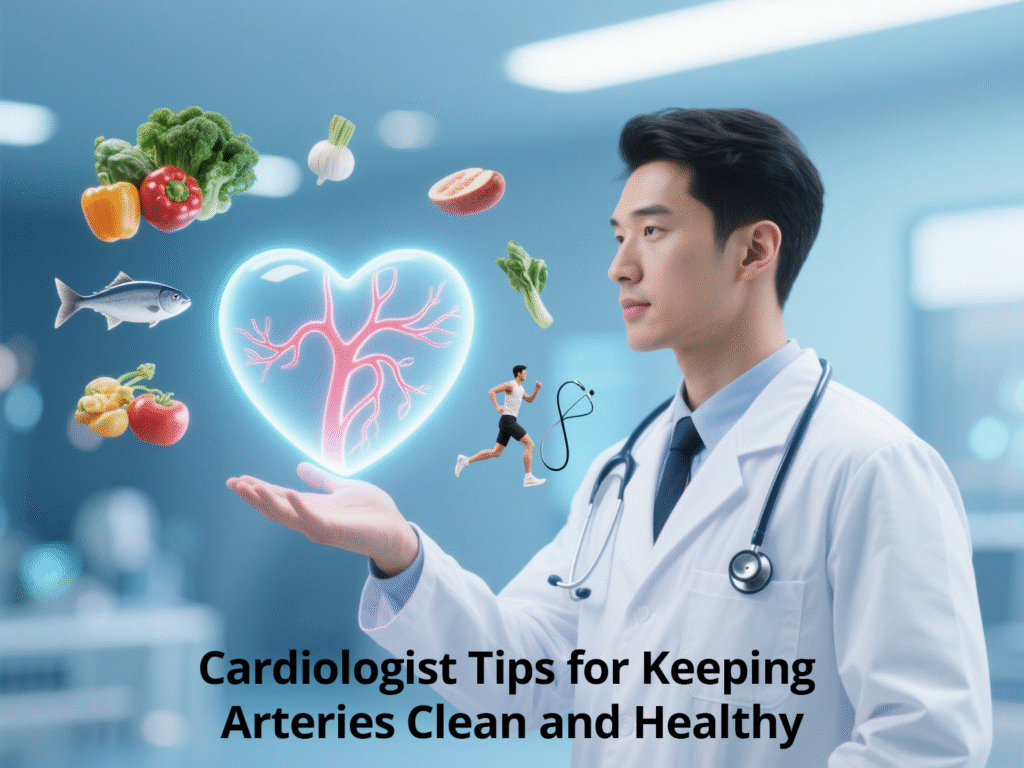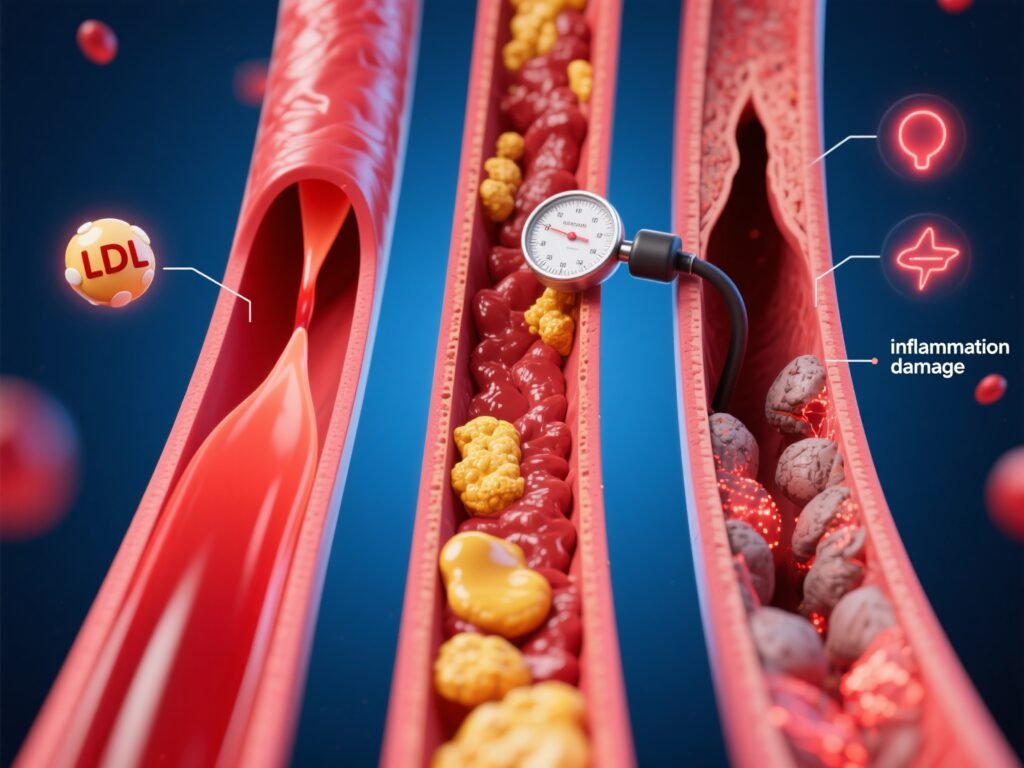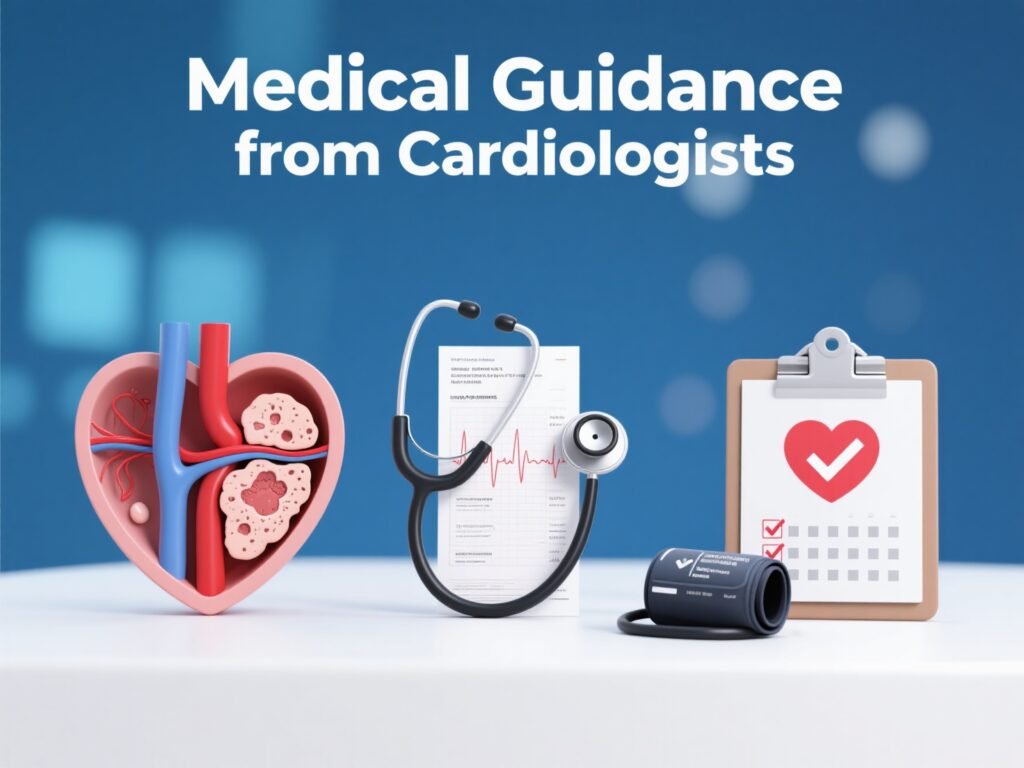Cardiologist Tips for Keeping Arteries Clean and Healthy

Your arteries are like highways for your blood. They carry oxygen and nutrients to every part of your body, keeping you alive and thriving. But just like highways can get clogged with traffic, arteries can become blocked with cholesterol, fat, and other substances. When this happens, the risk of heart attack, stroke, or other cardiovascular diseases skyrockets. The good news? Cardiologists stress that with the right lifestyle choices and awareness, you can keep your arteries clean and functioning smoothly for years to come.
Understanding Why Arteries Matter
Imagine your body as a busy city, with your arteries acting as roads and highways. Without smooth traffic flow, the city grinds to a halt. That’s exactly what happens inside your body when arteries get blocked — oxygen and nutrients can’t reach the organs and tissues that need them. Healthy arteries are strong, flexible, and clear, while unhealthy arteries become stiff, narrow, and prone to dangerous blockages. Cardiologists emphasize that arterial health is central to overall well-being and longevity.
How Arteries Become Clogged

Arteries don’t clog overnight. It’s usually a slow process that builds up over time, often without noticeable symptoms until it’s too late. The main culprit is atherosclerosis — the accumulation of fatty deposits, cholesterol, and other materials inside arterial walls. This buildup narrows the passageways, restricting blood flow.
The Role of Cholesterol in Plaque Formation
Cholesterol is essential for your body, but too much of the “bad” kind (LDL) can stick to artery walls. Over time, this cholesterol forms plaques that harden and make arteries less flexible. This is why cardiologists stress keeping LDL levels low and HDL (“good cholesterol”) high through diet, exercise, and sometimes medication.
The Danger of High Blood Pressure
Think of water flowing through a garden hose. If the pressure is too high, the hose gets damaged. Similarly, when blood pressure is consistently elevated, it puts strain on artery walls, making them more prone to damage and plaque buildup. Left unchecked, this can lead to life-threatening cardiovascular events.
Inflammation and Its Hidden Effects
Inflammation is like a silent saboteur. When the body is constantly inflamed — due to poor diet, smoking, stress, or illness — it damages artery linings, making them more vulnerable to cholesterol deposits. This hidden process contributes significantly to artery-clogging plaque formation.
Warning Signs of Unhealthy Arteries
Blocked arteries are often called “silent killers” because they can develop with little to no obvious symptoms. However, cardiologists note warning signs: frequent chest pain, shortness of breath, dizziness, numbness in limbs, or fatigue during mild exertion. These symptoms should never be ignored. At institutions like Northern Heart Hospital, cardiologists use advanced diagnostic tools to identify arterial issues before they cause serious harm.
Lifestyle Habits That Keep Arteries Clear

Preventing clogged arteries starts with daily choices. Cardiologists consistently highlight that lifestyle plays a bigger role than most people realize. The way you eat, move, and manage stress directly impacts how healthy your arteries remain over time.
The Power of a Heart-Healthy Diet
Your plate is your strongest weapon against clogged arteries. Diets rich in whole grains, lean proteins, fruits, vegetables, nuts, and omega-3 fatty acids support arterial health. For instance, replacing red meat with fatty fish like salmon or mackerel can help reduce cholesterol buildup. Processed foods, sugary snacks, and trans fats should be minimized since they directly contribute to plaque formation.
Exercise and Circulation Boost
Movement is medicine. Cardiologists recommend at least 150 minutes of moderate aerobic activity per week, such as brisk walking, swimming, or cycling. Exercise improves circulation, lowers blood pressure, boosts good cholesterol, and strengthens the heart muscle — all critical for healthy arteries.
Managing Stress for Arterial Health
Stress isn’t just a mental burden; it physically affects your arteries too. Chronic stress increases blood pressure and triggers inflammation. Techniques like yoga, meditation, deep breathing, and even hobbies that bring joy can reduce stress and promote arterial health.
Foods That Naturally Clean Arteries
Some foods act like natural “scrubbers” for your arteries. Garlic, for instance, has compounds that lower cholesterol and blood pressure. Berries are packed with antioxidants that fight inflammation. Nuts like almonds and walnuts provide healthy fats that reduce plaque buildup. Green leafy vegetables supply nitrates that relax blood vessels, improving circulation. Cardiologists often suggest incorporating these foods into daily meals as a preventive measure.
The Role of Hydration in Vascular Health
Think of blood as the river that flows through your arteries. If the river runs too thick, it struggles to flow smoothly. Staying hydrated keeps your blood less viscous, reducing strain on the arteries. Cardiologists recommend consistent water intake throughout the day rather than gulping large amounts at once.
Medical Guidance from Cardiologists

When it comes to heart and arterial health, nothing replaces expert medical advice. Regular screenings, blood tests, and imaging can catch problems early.
Insights from Dr. Tan Chiang Soo, Cardiologist
Dr. Tan Chiang Soo, a leading cardiologist at Northern Heart Hospital, emphasizes that prevention is far easier than treatment. His expertise in interventional cardiology has helped countless patients regain arterial health through lifestyle adjustments, medication, and advanced procedures. Dr. Tan often reminds patients that even small daily changes compound into massive long-term benefits.
The Importance of Regular Check-Ups
Annual check-ups aren’t just routine—they’re lifesavers. Early detection of high blood pressure, cholesterol imbalances, or arterial narrowing can prevent heart attacks or strokes. Cardiologists can tailor treatment plans that combine lifestyle strategies with medical interventions if necessary.
Advanced Medical Treatments for Artery Health
When lifestyle changes aren’t enough, cardiologists have advanced tools. These include medications like statins, minimally invasive procedures like angioplasty, or surgical options such as bypass surgery. These treatments reopen blocked arteries or create alternative blood flow pathways, restoring health and reducing risks.
The Connection Between Sleep and Arterial Wellness
Sleep is often overlooked but critical for arterial health. Poor sleep increases stress hormones, raises blood pressure, and triggers inflammation — all harmful to arteries. Cardiologists advise aiming for 7–9 hours of quality sleep each night. Creating a consistent bedtime routine and avoiding stimulants before bed are simple ways to improve sleep quality.
Myths About Artery Cleansing You Shouldn’t Believe
There’s a lot of misinformation about artery health. “Detox teas” or “miracle cleanses” claiming to clear arteries are not backed by science. Cardiologists warn against quick fixes, emphasizing that long-term habits like diet, exercise, and medical care are the only proven methods for keeping arteries clean.
Long-Term Strategies for Healthy Arteries
Think of artery health as a marathon, not a sprint. Consistency is key. Developing habits like balanced eating, staying active, managing stress, and attending regular check-ups creates a foundation for lifelong cardiovascular wellness. Cardiologists agree that the earlier you start, the better, but it’s never too late to make positive changes.
Final Thoughts on Protecting Your Arteries
Your arteries silently work every second to keep you alive. Protecting them is one of the greatest investments you can make in your future health. With insights from cardiologists like Dr. Tan Chiang Soo at Northern Heart Hospital, you have access to expert guidance that can transform your heart health. Remember — clear arteries mean a longer, stronger, and healthier life.
FAQs
1. Can clogged arteries be reversed naturally?
While some lifestyle changes can stabilize and reduce plaque buildup, complete reversal is rare. The goal is to prevent progression through diet, exercise, and medical care.
2. What is the best exercise for keeping arteries healthy?
Aerobic exercises like walking, swimming, and cycling are excellent for circulation and lowering risk factors associated with clogged arteries.
3. Are supplements effective in cleaning arteries?
Some supplements may support heart health, but none replace a balanced diet and medical treatment. Always consult a cardiologist before taking them.
4. How often should I check my cholesterol levels?
Cardiologists recommend a blood test every 4–6 years for healthy adults, and more frequently if you have risk factors like diabetes or high blood pressure.
5. What role does genetics play in artery health?
Genetics can increase your risk, but lifestyle choices still play a significant role. Even if heart disease runs in your family, preventive habits can make a big difference.
